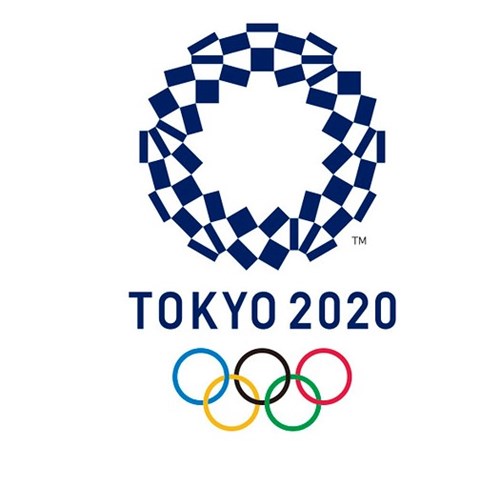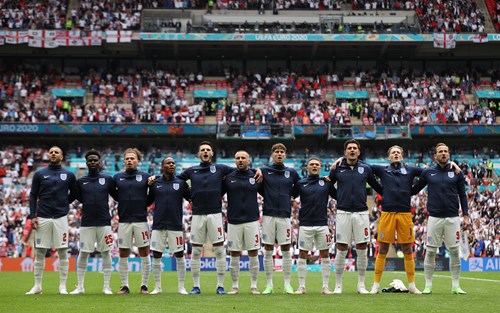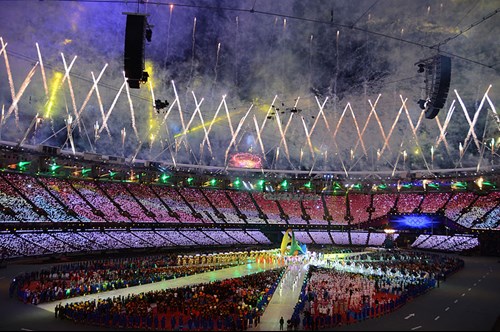Shortly after announcing the European Championships would be postponed last year, UEFA released a statement claiming that the tournament would remain as ‘Euro 2020’ in its official name, despite being played in 2021. But the governing body swiftly retracted this statement on Twitter, only to reinstate it days later, clarifying that it would in fact remain known as Euro 2020.
With UEFA unsure on how to approach the postponement from a branding perspective, there was clear internal debate and indecision surrounding the marketing of the delayed tournament which led many to question the reasons behind this illogical decision. The Tokyo 2020 Olympics, also postponed due to the pandemic, has similarly stuck to its original branding, something the International Olympic Committee (IOC) were adamant wasn’t going to change.

While these decisions may seem, to both sporting fanatics and those barely interested in the events, quite bizarre, there are many practical reasons why it made sense to maintain the original names. Quite simply, it avoids ambiguity. We know exactly what each competition is, who’s taking part, and there is no confusion about whether or not these are the events intended to take place last year. With major football tournaments, in particular, happening almost every other year, fans (admittedly not the die-hard kind) may be unsure of the relationship between this year’s event and the scheduled Euros in 2020 if new branding material was created under the logo of 2021.
As well as avoiding the risk of public confusion, there are huge commercial and financial benefits to continuing to use the current branding. A wealth of merchandise has been created under the logos Euro 2020 and Tokyo 2020, and if this were updated to 2021, billions would have to be spent re-producing marketing campaigns and merchandise. Following a financially cataclysmic year due to the reorganisation of the competitions, it seems preposterous to add further unnecessary costs to the most expensive Euros and Olympics of all time.
With sponsors in Japan promoting the Tokyo 2020 brand since 2015, the extent of merchandise created around the logo would be difficult to replicate – more material would exist in the original branding regardless. It’s not just t-shirts and cheap memorabilia that would need to be re-created and perhaps re-funded; $15,000 gold bars with ‘Tokyo 2020’ engraved into their frames have been surprisingly popular in the host country, having been available to buy since 2018.
Russel Preston, programme leader for UCFB’s BA (Hons) Football Business & Marketing degree, believes this helps to explain the decision. He said: “Four years have been spent for both the Olympics and the Euros in communicating the message – this would have attained recognition with the desired audience. Apart from adding an unnecessary cost burden to these sporting institutions, they are following the principles of branding in being consistent.”

To re-produce and re-distribute all their merchandise would not only be a financial catastrophe; it would also be an environmental one. The destruction and reproduction of all the material used would undoubtedly generate a huge amount of waste. As UEFA themselves claim on their website, the decision to maintain the original branding is “is in line with UEFA's commitment to make UEFA EURO 2020 sustainable”, adding a moral undertone to the long list of reasons the tournaments’ names should remain untouched.
But the practicalities perhaps only tell one convenient side of the tale - both the Euros and the Olympics are steeped in history and tradition, and there was perhaps a reluctance to further disrupt the four year intervals that have characterised the competitions since they began. The Summer Olympics, for example, have occurred every four years since it began in 1896, the only exception being World War II, when the 1944 games in London was cancelled completely and the city hosted four years later instead.
Yuriko Koike, the Governor of Tokyo, cited the tradition of the tournament always being held on even numbered years. “An odd number is out of the question”, she stated in a recent interview. Not only would this be a blemish in the immaculate history books, but it may prompt further confusion regarding the future of the tournament – would Paris 2024, for example, remain that year, or would this too be postponed?
The four-year interval for Euro 2020 was a particularly important one, marking the 60th anniversary of the European Championships – an honour UEFA were keen to commemorate. To change the tournament branding to ‘2021’ would further detract from this significant anniversary which should, arguably, be celebrated now more than ever given the importance of the event beyond football, serving as a symbol of hope and normality for many. The chaos and confusion over the tournament would likely be exacerbated given the emphasis placed on celebrating the 60th year since its birth.
While this confusion may well persist regardless of the official names, given both events themselves have clearly been postponed, changing the name would be changing that which we can control. Refusing to do so may serve as a subtle act of defiance; UEFA and the IOC are making a pointed statement that these tournaments will go ahead in as similar a way as possible to the original events.
UEFA’s website claims that maintaining the original branding will “serve as a reminder of how the whole football family came together to respond to the extraordinary circumstances of the COVID-19 pandemic, and of the difficult times that Europe, and the world, had to go through in 2020.” By honouring the original date of the tournament, the organisers are not overlooking the devastating events that led to its postponement in the first place.
But there may also be a strategic marketing spin of using old branding to generate more attention for the events. Presenting a tournament taking place in 2021 as EURO 2020 or Tokyo 2020 does, at its simplest, invite intrigue. It forces people into glancing twice, reconsidering what they’ve seen and therefore thinking about the competitions in ways they may not have otherwise – potentially attracting new fans in the process. The genius does, in a sense, lie in the simplicity – by not changing anything at all.

As leader of the MSc Football Communications & Digital Marketing programme, Shana Axcell recognises the chance to capitalise on the unprecedent circumstances for both major events. She said: “I do feel that it could be a marketing opportunity with areas like the merchandise sold, by having limited edition items sold that symbolise the endurance of the sports industry during 2020 and 2021.”
The irony of selling merchandise with branding on from the previous year is not lost on many fans – this may in fact increase the appeal of purchasing branded products, as they become more distinctive, a unique tribute to the mind-blowing year the world has endured, precisely because they’re promoting a tournament that should have taken place the previous year. The likelihood of either event being postponed again soon appears minuscule, adding an element of exclusivity to these items.
In fact, merchandise from disrupted sporting events has a niche online following that could further benefit profits. After cancelling the 1994 Major League Baseball World Series due to a player strike, the value of merchandise increased greatly, and still exists today through online auction websites. By maintaining the original branding, UEFA and the IOC have created a distinct, and therefore desirable, product that may generate more sales in the long-term and promote their brands through alternative means.
But despite the cynicism naturally intertwined with this viewpoint, there may be positive outcomes to emerge from the subtle marketing strategy. Shana continued: “These limited edition items could also be used as a corporate social responsibility initiative with a percentage of the sales going towards the health systems of nations, who ultimately got us through this pandemic.”
Whatever the agenda behind maintaining the original branding and staying connected to 2020 wherever possible, it doesn’t seem to have overshadowed a glorious, goal-ridden Euros so far. Let’s hope, in a few weeks’ time, the same can be said of the Olympics and these major sporting events can help re-ignite the flames of frenzied fans across the world following a year we’re never likely to forget.




















